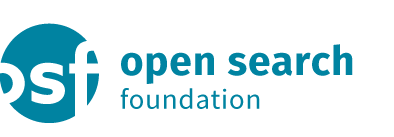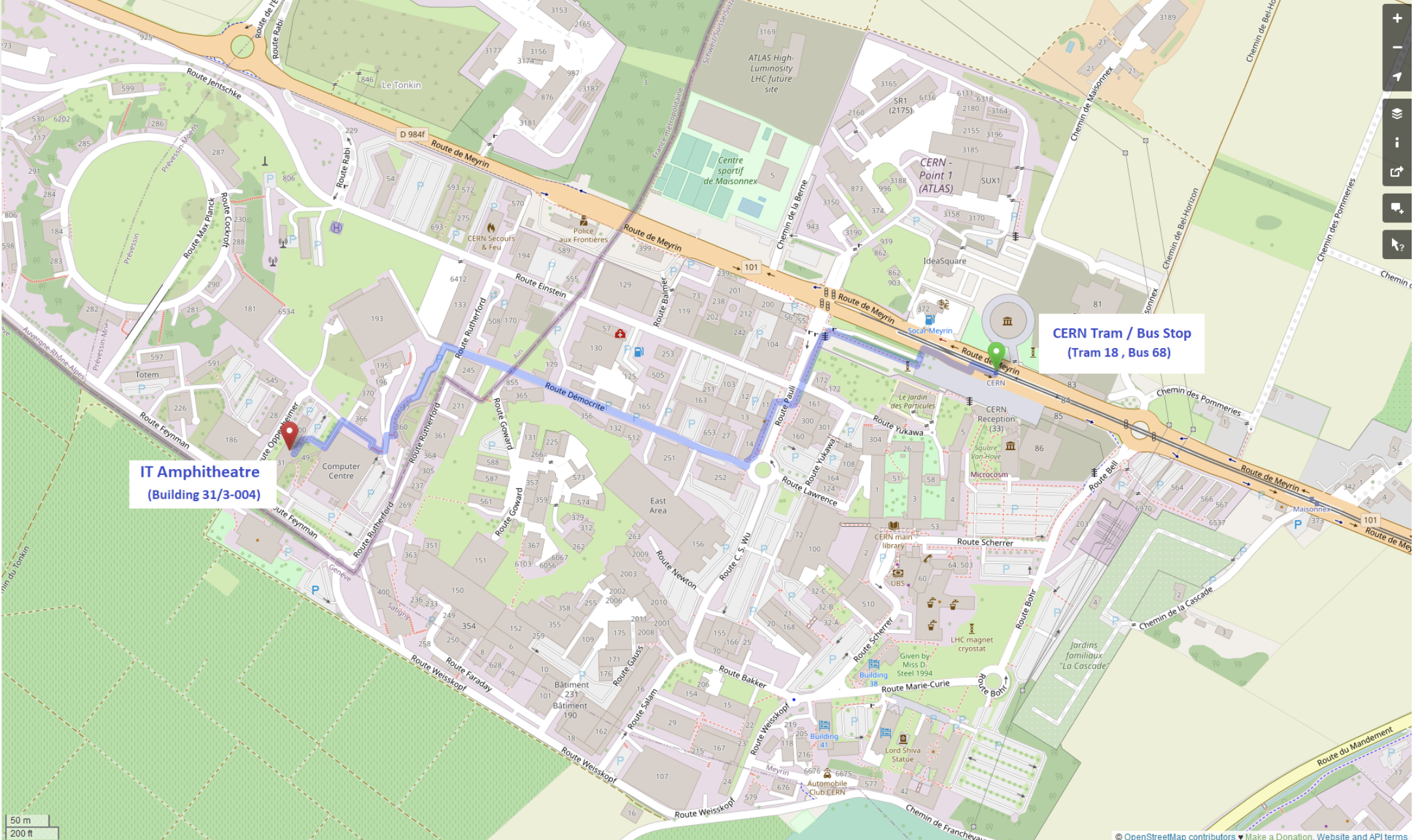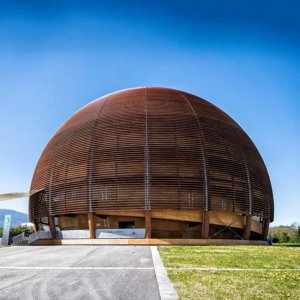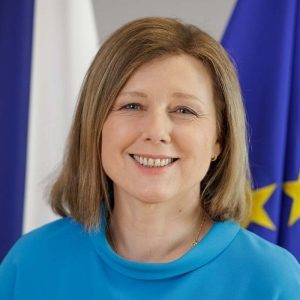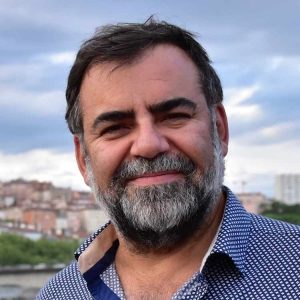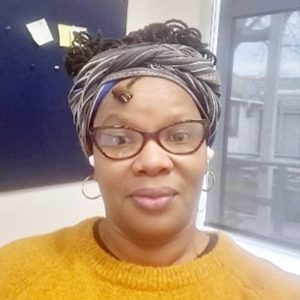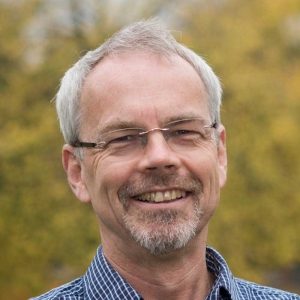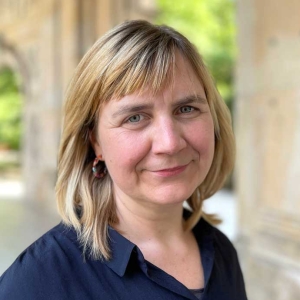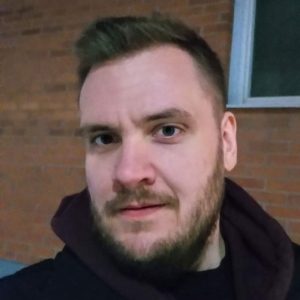5th International
5th International
The #ossym Open Search Symposium series brings together the Open Internet Search community in Europe for the fifth time this year. The interactive conference provides a forum to discuss and further develop the ideas and concepts of open internet search. Participants include researchers, data centres, libraries, policy makers, legal and ethical experts, and society.
Conference Programme
Discuss interdisciplinary aspects of Open Search
technical • ethical • legal • educational • economic • applications
Keynotes
Věra Jourová
Vice President of the European Commission for Values and Transparency
Ricardo Baeza-Yates
Institute for Experiential AI, Northeastern University
Angella Ndaka
The Centre for Africa Epistemic Justice
University of Otago
Christoph Schuman
LAION e.V.
Research Tracks
- Human Centric Search, Privacy and User Experience
- Machine Learning and Retrieval
- Open Search Ecosystem
OpenWebSearch.eu
Research and Updates from the EU Project groups and researchers
Industry Track „Alternative Search Engines“
Colin Hayhurst, CEO Mojeek
Anke Meinders, CEO fragFINN.de
Viktor Lofgren, Founder, Marginalia Search
Panel Session
„Business Applications and Economic Value of Open Search“ with
Isabell Claus, Managing Director, thinkers.ai
Jacqueline Erhart, ASFINAG Maut Service GmbH
Prof. Uwe Seebacher, Author and Editor, Springer Nature Group
Interactive Sessions + Workshops
- Cross-border Legal Considerations for Open Web Indexes
- Energy Efficiency in Open Web Search
- Dystopia vs Utopia – a hands-on workshop on ethical aspects of web search
Overview timetable
Day 1 | 4 Oct. 23
13:00 | Conference Opening
Welcome
Stefan Voigt, Michael Granitzer
Open Search Foundation
Andreas Wagner
CERN
13.15 | Keynote
„Democratizing AI through community organizing“
Christoph Schumann
LAION e.V.
14.00 | Invited Talk
„Next Generation Internet – Initiative of the European Commssion. What’s next?“
Jorge Gasos (European Commission/DG Connect)
14.15 | Invited Talk
„openwebsearch.eu – Where do we stand?“
Michael Granitzer, University of Passau, Germany
14.30 | ows.eu Track
„OpenWebSearch.eu I“
Research and Updates from the EU Project groups and researchers
Session Chair: Tobias Hecking (DLR German Aerospace Center, Munich, Germany)
“Product Spam on YouTube: A Case Study”
Janek Bevendorff (Bauhaus-Universität Weimar, Germany), Matti Wiegmann (Bauhaus-Universität Weimar), Martin Potthast (Leipzig University, Germany, and ScaDS.AI), Benno Stein (Bauhaus-Universität Weimar, Germany)
“Challenges of index exchange for search engine interoperability”
Djoerd Hiemstra, Gijs Hendriksen, Chris Kamphuis, Arjen P. de Vries (Radboud University, The Netherlands)
“Prototyping Open Web Search Applications with TIRA: A Case Study in Research-oriented Teaching”
Maik Fröbe (Friedrich Schiller Universität Jena, Germany), Theresa Elstner (Leipzig University, Germany), Harrisen Scells (Leipzig University, Germany), Benno Stein (Bauhaus-Universität Weimar, Germany), Martin Potthast (Leipzig University, Germany, and ScaDS.AI)
15.30 | Coffee Break
16:00 | ows.eu Track
„OpenWebSearch.eu II“
Research and Updates from the EU Project groups and researchers
Session Chair: Arjen de Vries (Radboud University, Netherlands)
“OWler: Preliminary results for building a Collaborative Open Web Crawler”
Michael Dinzinger, Saber Zerhoudi, Michael Granitzer, Mohammed Al-Maamari, Mahmoud Istaiti, Jelena Mitrovic (University of Passau, Passau, Germany)
“Commercialized Generative AI: A Critical Study of the Feasibility and Ethics of Generating Native Advertising Using Large Language Models in Conversational Web Search”
Ines Zelch Leipzig (Friedrich-Schiller-Universität, Jena, Germany), Matthias Hagen (Friedrich-Schiller-Universität, Jena, Germany), Martin Potthas (Leipzig University, Germany, and ScaDS.AI, Leipzig, Germany)
“A Comprehensive Dataset for Webpage Classification”
Mohammed Al-Maamari, Mahmoud Istaiti, Michael Granitzer, Michael Dinzinger, Saber Zerhoudi, Jelena Mitrovic (University of Passau, Passau, Germany)
“Governance Towards an Open Web Index”
Jasmin Tietgen (Open Search Foundation, Starnberg, Germany), Maari Alanko (CSC – IT Center for Science, Espoo, Finland)
“Conceptual Design and Implementation of a Prototype Search Application using the Open Web Search Index”
Alexander Nussbaumer (Graz University of Technology, Austria), Sebastian Gürtl (Graz University of Technology, Austria), Christian Gütl (Graz University of Technology, Austria), Rohit Kaushik (Graz University of Technology, Austria, Austria & University of Waterloo, Ontario, Canada), G. Hendriksen (Radboud University, Nijmegen, The Netherlands)
“Cooperate via Open Console”
Mark Overmeer (MARKOV Solutions, Arnhem, The Netherlands)
18:30 | Ice Breaker
Day 2 | 5 Oct. 23
9:00 | Keynote
Věra Jourová
Vice President of the European Commission for Values and Transparency
9:30 | Research Track
„Human centric Search / User Experience“
Session Chair: Igor Jakovljevic (Graz University of Technology & CERN)
“Understanding and mitigating Cognitive Bias during Web Search”
Simon Hitzginger, Christian Gütl, Alexander Nussbaumer, Chiara Ruß-Baumann (Graz University of Technology, Graz, Austria)
„Interfacing generic and specialized search engines on the User side“
Steffen Leich-Nienhaus (MBG AG, Germany)
“Linknovate startup radar – datalife use case”
Carlos Rodríguez (Linknovate Science, Santiago de Compostela, Spain), Manuel Noia (Linknovate Science, Santiago de Compostela, Spain), Javier Parapar (Information Retrieval Lab, Department of Computer Science, University of A Coruña, Spain)
Manuel Theophil (Rheinland-Pfälzische Technische Universität Kaiserslautern-Landau, Landau, Germany)
10:45 | Coffee Break
11:15 | Workshop Session
Parallel Workshops
Workshop 1:
Dystopia vs Utopia – a hands-on workshop on ethical aspects of web search
Workshop 2:
Cross-Border Legal Considerations
Workshop 3:
Energy Efficiency in Open Web Search
12.30 | Lunch-Break
14:15 | Panel Session
„Business Applications and Economic Value of Open Search“
Session Chair: Isabell Claus (thinkers.ai)
Jacqueline Erhart, ASFINAG Maut Service GmbH
Prof. Uwe Seebacher, Author and Editor, Springer Nature Group
15.30 | Keynote
„Bias in Search and Recommender Systems“
Ricardo Baeza-Yates
Institute for Experiential AI, Northeastern University, USA
16:15 | Coffee Break
16.45 | Invited Talk
Building Authentic AI: The Synergy of Decentralized Knowsledge Graph and Community Incentives
Branimir Rakić, co-founder and CTO at Trace Labs
17.00 | Industry Track
„Alternative Search Engines“
Session Chair: Christine Plote (Open Search Foundation)
Colin Hayhurst, CEO, Mojeek, United Kingdom
„Web Scale Search from the Ground Up: Establishing a Viable Alternative to Big Tech.“
Anke Meinders, Managing Director, fragFINN e.V., Germany
„For children only – the search engine fragFINN“
Viktor Lofgren, Founder, Marginalia Search, Sweden
„Assumptions about the shape of the web“
18:15 | Closing of Day 2
19:30 | Conference Dinner
Day 3 | 6 Oct. 23
9:00 | Keynote
„Inclusion by whose terms? When being in doesn’t mean digital and web search inclusion“
Angella Ndaka
The Centre for Africa Epistemic Justice and University of Otago
9:45 | Research Track
„Machine Learning and Retrieval“
Session Chair: Saber Zerhoudi, University Passau
“Customizable Categorization of Documents in Evidence Based Research for Biopharma”
Reihaneh Manteghi (Graz University of Technology, Graz, Austria), Eduardo Enrique Veas (Graz University of Technology, Graz, Austria), Domagoj Segregur (UCB Biopharma company)
“A System for Geospatial Question-Answering using LLMs, LangChain, ChromaDB, and a Modern React.Js Frontend”
Patrick Lovric, Maximilian Theiner (ISDS, Graz University of Technology, Graz, Austria)
“Extending Power ISA for Search with SVP64”
Luke Kenneth Casson Leighton( Vantosh, Antwerp, Belgium), Toshaan Bharvani (Vantosh, Antwerp, Belgium), Konstantinos Margaritis (VectorCamp, Greece)
“Privacy-Preserving Collaborative Filtering: Evaluating a Machine Learning Recommender System in a Large Interconnected Organization”
Igor Jakovljevic, et al. (ISDS, Graz University of Technology, Graz, Austria & CERN, Geneva, Switzerland), Christian Gütl (ISDS, Graz University of Technology, Graz, Austria), Andreas Wagner (CERN, Geneva, Switzerland)
11:00 | Coffee Break
11:30 | Research Track
„Open Search Ecosystem“
Session Chair: Maria Dimou, CERN
“Towards a smart network schema builder using anonymous and implicit interaction data”
Aleksandar Bobic (Graz University of Technology, Austria & CERN, Geneva, Switzerland), Jean-Marie Le Goff (CERN, Geneva, Switzerland), Christian Gütl (Graz University of Technology, Austria)
„Exploiting Key Information from Open Scientific Search Results to Enhance User Experience“
Sarah Frank (CERN, Geneva, Switzerland + ISDS, Graz University of Technology, Graz, Austria), Andreas Wagner (CERN, Geneva, Switzerland), Christian Gütl (ISDS, Graz University of Technology, Graz, Austria), Alexander Nussbaumer (ISDS, Graz University of Technology, Graz, Austria)
Exploring the Landscape of Innovation: A Network-Based Approach for Visualizing and Analyzing Heterogeneous Patent Graphs
Andre Rattinger, Christian Gütl (Graz University of Technology, Graz, Austria)
“Open (Web) Search, a booster for Open Science?”
Stefan Voigt, Tobias Hecking (German Aerospace Center, Munich, Germany)
“Europe’s Technical Debt: Why We Need Web Search in the Age of Generative AI”
Malte Ostendorff, Pedro Ortiz Suarez, Julian Moreno-Schneider, Georg Rehm (German Research Centre for Artificial Intelligence DFKI, Kaiserslautern, Germany)
13:30 | Closing
Wrap-up
Closing of #ossym 2023
Way ahead
Speaker Info
Keynote Speakers
Věra Jourová
Vice President of the European Commission for Values and Transparency
Keynote | 5 October | 9:00 |
Keynote
Věra Jourová is currently Vice President of the European Commission for Values and Transparency and deals with democracy, rule of law, media pluralism and fight against disinformation. From 2014 to 2019, she served as EU Commissioner for Justice, Consumers and Gender Equality. In 2014, before arriving to the European Commission, Ms Jourová held the position of Minister for Regional Development in the Czech Republic. Previous to this, from 2006 to 2013, she worked in her own company as an international consultant on European Union funding, and was also involved in consultancy activities in the Western Balkans relating to the European Union Accession. She holds a Degree in Law (Mgr.) and a Master’s degree (Mgr.) in the Theory of Culture from the Charles University, Prague.
Ricardo Baeza-Yates
Director of Research
Institute for Experiential AI, Northeastern University, USA
Keynote | 5 October | 15.30 |
„Bias in Search and Recommender Systems“
Ricardo Baeza-Yates is Director of Research at the Institute for Experiential AI of Northeastern University. Before, he was VP of Research at Yahoo Labs, based in Barcelona, Spain, and later in Sunnyvale, California, from 2006 to 2016. He is co-author of the best-seller Modern Information Retrieval textbook published by Addison-Wesley in 1999 and 2011 (2nd ed), that won the ASIST 2012 Book of the Year award. From 2002 to 2004 he was elected to the Board of Governors of the IEEE Computer Society and between 2012 and 2016 was elected for the ACM Council. In 2009 he was named ACM Fellow and in 2011 IEEE Fellow, among other awards and distinctions. He obtained a Ph.D. in CS from the University of Waterloo, Canada, in 1989, and his areas of expertise are web search and data mining, information retrieval, bias on AI, data science and algorithms in general.
In his presentation, Ricardo will cover all biases that affect search and recommender systems. They include biases on the data, the algorithms as well as the user interaction, in particular the ones related to relevance feedback loops (e.g., ranking and personalization). In each case he will cover the main concepts and when known, the techniques to ameliorate them, as well as biases that might be product of the evaluation methods used. Finally, he will also explore the cognitive biases involved.
Angella Ndaka
The Centre for Africa Epistemic Justice
University of Otago, Newzealand
Keynote | 6 October | 9.00 |
„Inclusion by whose terms? When being in doesn’t mean digital and web search inclusion“
Angella Ndaka is an early career researcher at the University of Otago (New Zealand), Winner of Women in AI Awards APAC 2023 and among the top 100 women in AI Ethics List 2023. Her PhD research focused on sustainable AI techno-futures. Moreover, she heads the Centre for Africa Epistemic Justice, a think tank following her “quest for Africa to find its legitimate place in the face of the current and future technological revolution.”
In her talk, Angella will show how AI can impact different communities, landscapes, and sectors differently, and how industry, governments, and organizations may adapt, innovate, and strategize to respect the values of the wider society.
Christoph Schuhmann
Computer Scientist, Teacher, Co-Founder of LAION e.V., Germany
Keynote | 4 October | 13.15 |
„Democratizing AI through community organizing“
Christoph Schuhmann is an educator and computer scientist who co-founded the German non-profit organization LAION e.V., which strives to democratize state-of-the-art AI research and models. He studied computer science, physics, and psychology at the University of Vienna. Before actively working on AI, he produced the documentary „Schools of Trust“ about schools where kids can learn what they are curious about, without mandatory curricula, grades, or other extrinsic rewards. In the past 10 years, Schuhmann has advised over 50 start-up groups for such schools on education and business matters, completely for free (as his „hobby“), to accelerate the growth of this movement. Nowadays, Schuhmann works as a tenured high school teacher and spends his free time organizing LAION’s community with thousands of scientists, developers, and engineers, who are united by one common goal: making state-of-the-art AI models openly accessible for everyone in the world, as a humanitarian right.
In this talk, he’ll delve into the vital role of open-source AI and grassroots development in democratizing AI benefits. Open-source AI enables broader participation, transparency, and innovation, which is crucial in mitigating the monopolistic control of AI by a few corporations. This grassroots approach fosters inclusivity, allowing citizens, businesses, and organizations to actively contribute to and benefit from AI advancements. He will explore the work of the Large-Scale Artificial Intelligence Network (LAION), a non-profit advocating for a publicly funded supercomputer to nurture large-scale, open-source AI models. LAION’s efforts, such as developing openCLIP and OpenAssistant, underscore the potential of open-source AI in offering accessible, non-profit alternatives. His argument: By democratizing AI, we can ensure the technology’s benefits reach all corners of society, fueling a more equitable future.
Industry Track “Alternative Search Engines”
Colin Hayhurst
CEO, Mojeek, United Kingdom
Industry Track “Alternative Search Engines”
| 5 October | 17.00 |
„Web Scale Search from the Ground Up: Establishing a Viable Alternative to Big Tech.“
Colin Hayhurst is the Chief Executive Officer of Mojeek Limited, a fully remote company with its roots in the UK. Mojeek is an international web search engine, used globally, that has no dependencies on any other company. With no-tracking Mojeek offers an alternative to proposition and solution to users and API customers alike. Colin has significant commercial and technical experience in startups, academia and industry. He has been a co-founding CEO or CTO of several startups in high-performance computing, web-infrastructure and machine learning respectively. He has conducted R&D in high energy physics, including contributing to design work for the CERN LHC beam dump and ATLAS detector.
In his talk, Colin will outline the very different path taken by Mojeek to build and establish a viable web scale international search engine. Mojeek is a commercial alternative to Big Tech, with a very different proposition, most notably no-tracking. He will discuss the technical challenges at Mojeek, including how one delivers a fast user and API customer service, for an index of over 7 billion pages. The business model and guiding principles on which Mojeek is based, and designed, shall be explained.
Anke Meinders
Managing Director of fragFINN e.V., Germany
Industry Track “Alternative Search Engines”
| 5 October | 17.00 |
„For children only – the search engine fragFINN“
Anke Meinders is the Managing Director of the NGO fragFINN e.V. and has been working as a media pedagogue for fragFINN e.V. since 2007. She studied education and has been interested in the relationship between education and digital media for children from the very beginning. Due to her many years of experience at fragFINN, she is very familiar with online content for the young target group. Keeping the search engine fragFINN interesting and attractive for children over time is a great and exciting task for fragFINN and the team.
In her talk Anke will introduce the concept and initial idea behind fragFINN, a website and an app offering children their own space in the Internet where they can surf, search and play safely. The fragFINN search engine is based on a so-called ‚positive list‘ of websites that are both interesting and safe for children. Anke will outline how the fragFinn search engine works and what the special needs of the target group of children are. Over the years fragFINN has developed steadily. Children’s surfing habits are also changing at a fast pace. Anke will report on these changes and the challenges for fragFINN in the case study. She will also explain how AI can support the testing of the websites and the quality of the search results in the future.
Viktor Lofgren
Founder, Marginalia Search
Industry Track “Alternative Search Engines”
| 5 October | 17.00 |
„Assumptions about the shape of the web“
Viktor Lofgren is the Founder of Marginalia Search, a small specialised search engine, based in Sweden. The search engine takes you of the beaten track by letting you find small quality web pages. These pages barely surface in commercial search engines because they are snowed under by larger commercial websites and search engine marketing.
Panel Session
“Business Applications and Economic Value of Open Search“
Isabell Claus
Managing Director
thinkers GmbH, Vienna, Austria
Panel Session “Business Applications and Economic Value of Open Search“
| 5 October | 10.00 |
Dr. Isabell Claus is CEO of thinkers.ai, Serial Tech Entrepreneur, Winner of the „Europe State Award 2022“ awarded by the Austrian Federal Chancellery, „Entrepreneur of the Year 2020” and achieved five awards as “Top 100 fastest growing companies in EMEA” (Deloitte und Financial Times Awards) for five consecutive years together with her venture teams.
Her current venture thinkers.ai specializes in artificial intelligence for the analysis of web data. Before she was member of the co-founders and management team of RadarCybersecurity, one of Europe’s largest cybersecurity tech companies. Dr. Isabell Claus‘ main focus is on growth strategies, internationalization, technology, digital business models, MarCom and Public Affairs. She gained professional experience in the US, Singapore, the United Arab Emirates, Germany and Austria. Beside her entrepreneurial career, Dr. Isabell Claus holds lectures on AI strategies and is author of several publications on AI and cybersecurity.
Jacqueline Erhart
Leitung Kooperative Vernetzte und Automatisierte Mobilität und Digitale Infrastruktur, ASFINAG Maut Service GmbH, Austria
Panel Session “Business Applications and Economic Value of Open Search“
| 5 October | 10.00 |
- Leitung Kooperative Vernetzte und Automatisierte Mobilität und Digitale Infrastruktur, ASFINAG Maut Service GmbH
- Chairwoman – Intelligent Transport Systems and Connected & Autonomous Vehicles, ASECAP – EU ASSOCIATION Brussels
- ATTC Vorstandsvorsitzende, ATTC – Austrian Traffic Telematics Cluster
- Aufsichtsratsvorsitzende, AustriaTech
Prof. Uwe Seebacher
University of Applied Sciences Munich, University of Applied Sciences Vienna
Panel Session “Business Applications and Economic Value of Open Search“
| 5 October | 10.00 |
- Visiting Faculty Applied AI/Predictive Intelligence, University of Applied Sciences Munich
- Visiting Faculty Marketing & Sales, University of Applied Sciences for Management & Communication, Vienna
- Visiting Faculty MarCom, Sales, and Predictive IntelligenceVisiting, Indian Institute of Management, Shillong
- Author and Editor, Springer Nature Group
Programme Committee
Prof. Dr. Wolf-Tilo Balke | L3S Research Center, Braunschweig, Germany
Prof. Dr. Alexander Decker | Technische Hochschule Ingolstadt, Germany
Prof. Dr. Kai Erenli | University of Applied Sciences BFI Vienna, Austria
Dr. Christian Geminn | University of Kassel, Germany
Prof. Dr. Michael Granitzer | University Passau, Germany
Prof. Dr. Christian Guetl | Graz University of Technology, Austria
Prof. Dr. Andreas Henrich | University Bamberg, Germany
Prof. Dr. Mohammed Kaicer | Faculty of Sciences Kenitra, Morocco
Prof. Dr. Dieter Kranzlmüller | Leibniz Supercomputing Centre and LMU, Munich, Germany
Dr. Philipp Mayer-Schlegel | GESIS, Germany
Prof. Dr. Jelena Mitrovic | University of Passau, Germany
Prof. Dr. Engelbert Niehaus | RPTU University of Kaiserslautern-Landau, Germany
Prof. Dr. Monica Palmirani | Università di Bologna, Italy
Prof. Dr. Martin Potthast | Leipzig University, Germany
Prof. Dr. Christin Seifert | University of Marburg, Germany
Dr. Tim Smith, CERN | Geneva, Switzerland
Dr. Stefan Voigt | Open Search Foundation, Germany
Prof. Dr. Arjen P. de Vries | Radboud University, Netherlands
Dr. Andreas Wagner | CERN, Geneva, Switzerland
Organising Committee
Maari Alanko | CSC, Finland
Dr. Isabel Claus | Thinkers.ai, Austria
Prof. Dr. Michael Granitzer | University Passau, Germany
Prof. Dr. Christian Guetl | Graz University of Technology, Austria
Christine Plote | Open Search Foundation, Germany
Dr. Stefan Voigt | Open Search Foundation, Germany
Dr. Andreas Wagner | CERN, Geneva, Switzerland
Main Topics
Topics of #ossym2023 include but are not limited to
- Open search architectures and platforms
- Federated search and cross-domain search
- Web Data Analytics and Web Mining
- Natural language and multi-media processing for search
- Large Language Models, Machine learning and generative AI
- Personalization and recommendation in search
- Conversational Retrieval Experiences
- Georeferencing of web content and geospatial search/ analysis
- Evaluation of open search systems
- Green computing and sustainability
- Societal and ethical challenges and solutions
- Politics and governance
- Search engine advertising and business models in an open search world
- Applications of open search in domains such as science, e-commerce, health, and education
- Legal aspects
- Economic dimensions of open search
